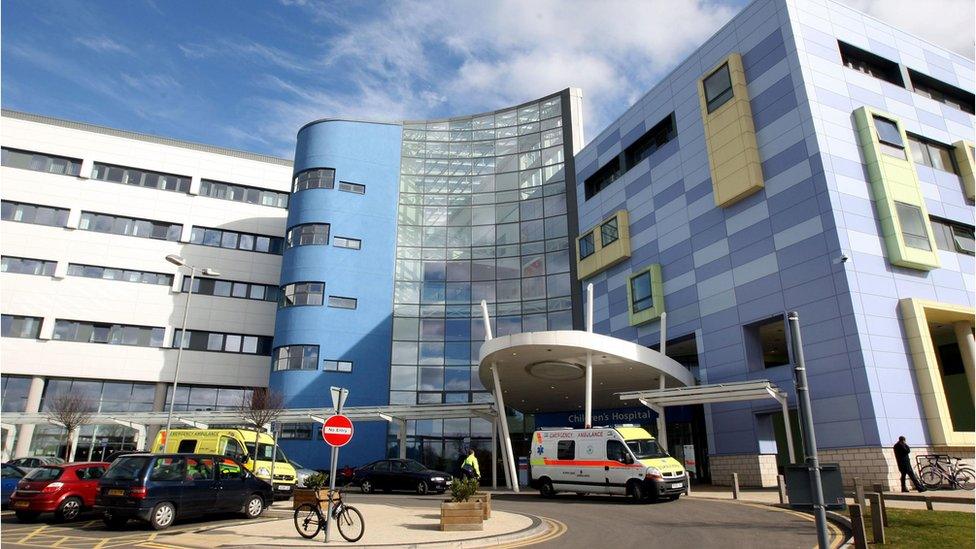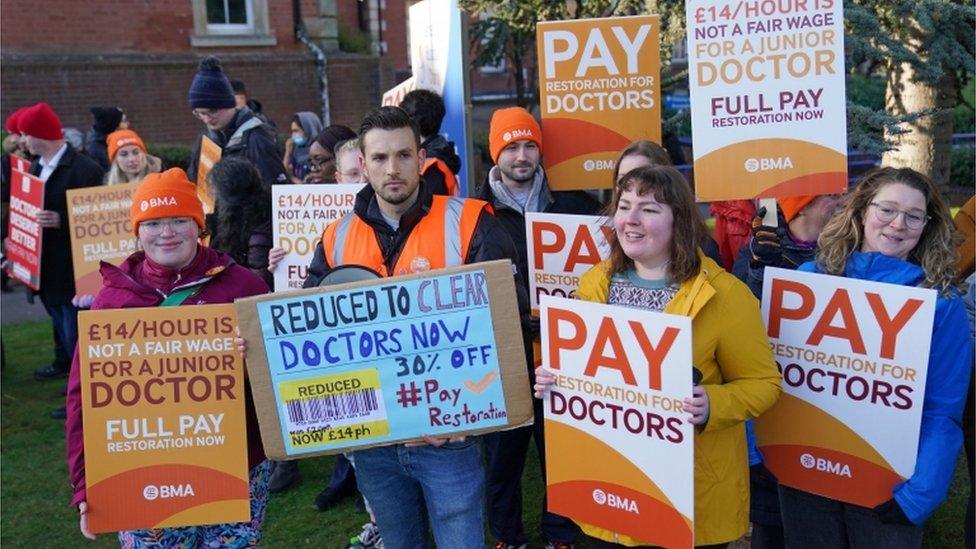Oxford University Hospitals junior doctors strike causes delays
- Published

Junior doctors at the John Radcliffe Hospital are taking industrial action
Junior doctors from Oxford University Hospitals (OUH) are on strike because of a pay dispute.
The action started at 07:00 GMT and will last three days, with senior doctors drafted in to provide cover.
Andrew Molodynski, chair of the British Medical Association (BMA) regional consultants committee, said junior doctors had seen "massive pay erosion over the last 15 years".
OUH said it had rescheduled some appointments.
The trust is prioritising urgent and emergency care, with some elective and day case procedures also disrupted.
It comes after talks between the BMA and government broke down, leading junior doctors to gather at the entrance to the John Radcliffe Hospital in Oxford, calling for "pay restoration".
Mr Molodynski, who works as a community psychiatrist in Oxford, said it was "really sad in the run up to Christmas" and the "vast majority of junior doctors wanted to avoid that".
He said it had been a "difficult decision" for those taking the industrial action, but he hoped further talks would take place with the government "to look at ways the offer can be improved and an agreement can be reached".
He added: "People who need urgent healthcare should absolutely go and seek it and provisions have been made, usually involving senior doctors such as myself, to cover the gaps left by junior doctors not being at work."
'Long wait'
Andrea Lewis, the NHS's regional chief nurse for the south of England, said: "The strike action comes at a really challenging time and a pressurised time for the NHS, there's no two ways about that.
"Although it is junior doctors stepping out obviously the NHS is a bigger workforce and people tend to forget that, but it is a multi-disciplinary approach we're adopting and have done for the previous strikes as well."
Sara Randall, chief operating officer at OUH, said its urgent and emergency care services were "highly likely to be affected".
"Our emergency department colleagues are working exceptionally hard, and have to prioritise patients who genuinely need emergency care," she said.
Patients with less serious conditions are advised to use their local pharmacy, minor injuries unit, GP, or NHS 111, or "face a very long wait".
NHS strike action has seen more than 1.1 million appointments and treatments cancelled in the past year.
This walkout will be followed by a six-day strike at the start of January, the longest in NHS history.
Nearly half of NHS doctors are junior doctors - a group that spans those just out of university through to some who have 10 years or more experience.
Two-thirds are members of the BMA - and they are joined by members of the much-smaller Hospital Consultants and Specialists Association union.
Health Secretary Victoria Atkins previously said it was "disappointing" junior doctor leaders had walked away from negotiations.
"The new strikes will result in more disruption for patients and extra pressure on NHS services and staff as we enter a busy winter period, risking patient safety," she added.

Follow BBC South on Facebook, external, X, external, or Instagram, external. Send your story ideas to south.newsonline@bbc.co.uk, external.
- Published20 December 2023
